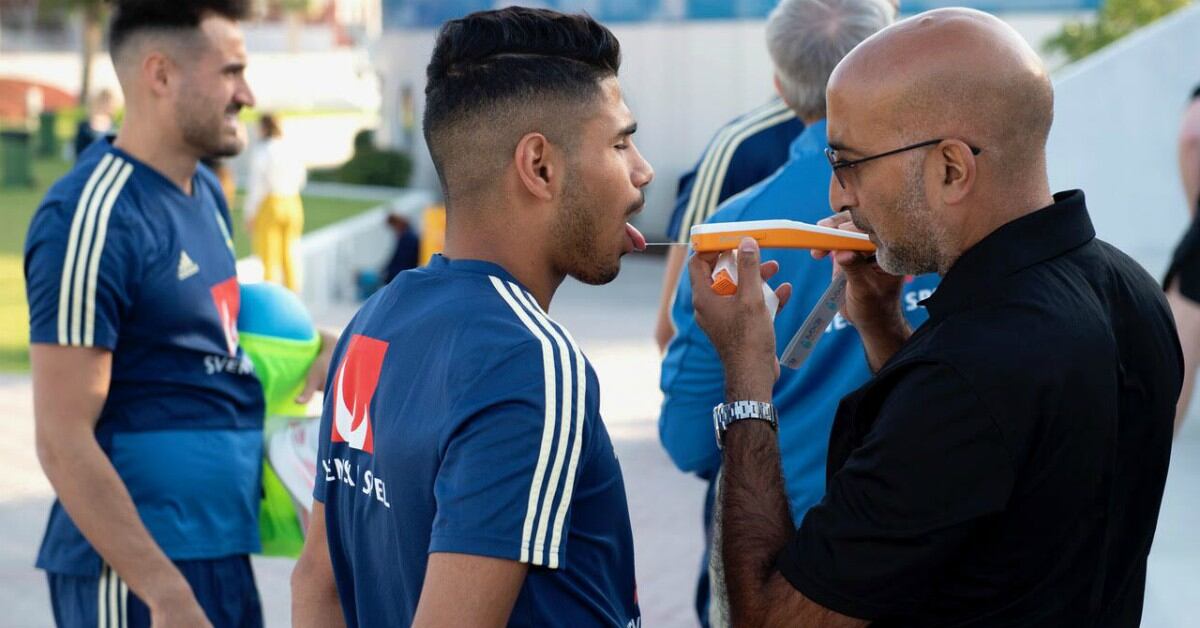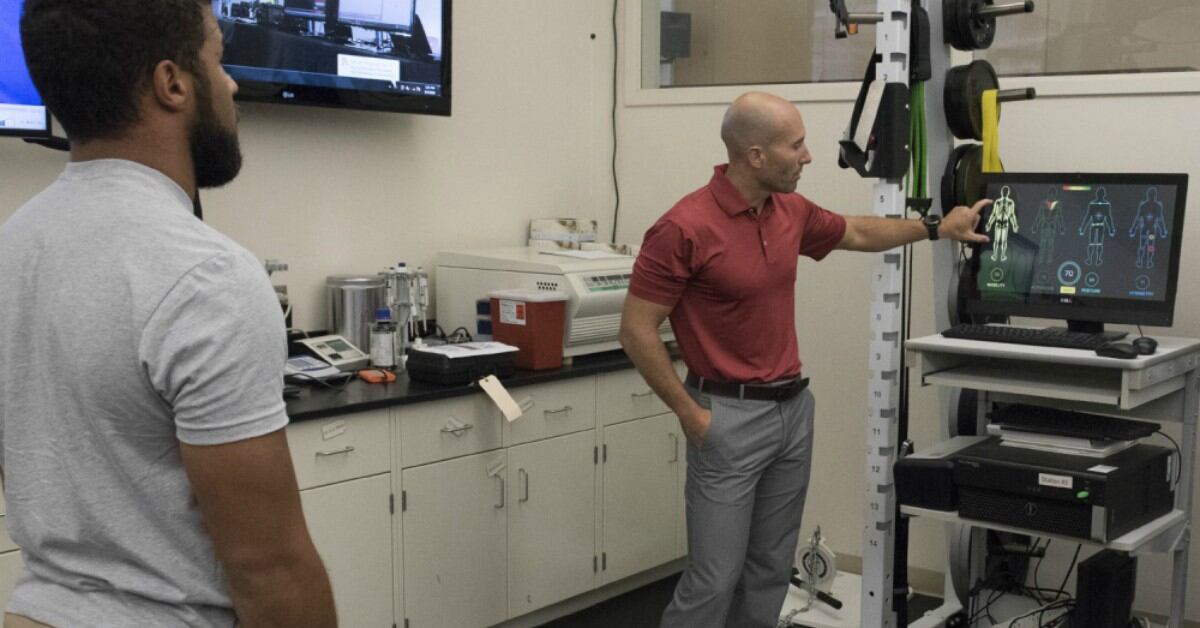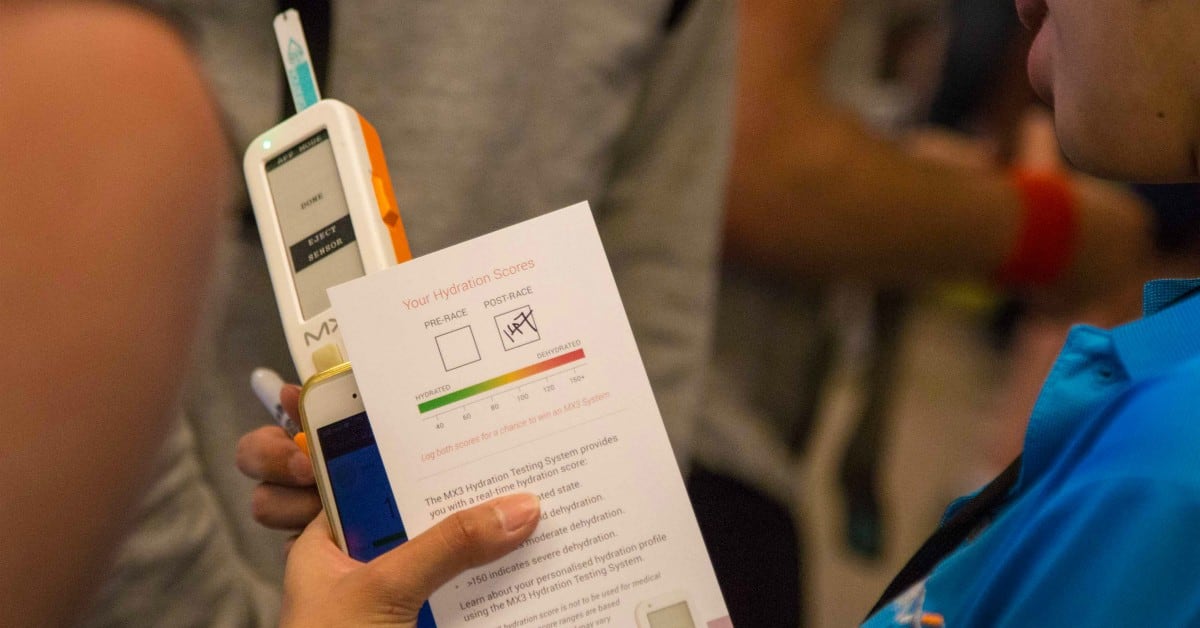Whether you’re going outside in the heat of the day or recovering from a bout of the flu, you’re bound to get the same advice from every health professional — or mom — out there: Stay hydrated.
Now, there’s an easy way to know whether you’re getting enough fluids through the help of a handheld device that tests the density of your saliva. The Air Force is testing the new technology by MX3 Diagnostics for ways to maintain and improve airmen’s overall wellness and performance on the job.
“In the Air Force, a lot of our training environments are happening in really hot climates,” said Adam Strang, director of the Air Force Research Lab’s Signature Tracking for Optimized Nutrition and Training laboratory at Wright-Patterson Air Force Base in Dayton, Ohio. “Hydration has been an issue for a long time.”
There are all sorts of tools out there that recommend a specific amount of fluids based on age, weight and activity level, Strang said. But until now, there’s never been an easy way to test how much fluid is in your system or whether you need more.
Enter the MX3 Hydration Testing System. Simply place a disposable test strip on your tongue, plug it into the handheld meter and wait five seconds for your individualized reading to appear.
“The denser your saliva, the less hydrated you are,” said MX3 co-founder Michael Luther.

The system also sends your results to an app on your smartphone to help you keep track of your hydration over time.
Using saliva to determine hydration isn’t new, but doing it quickly and outside of a lab with a meter the size of your palm is, Luther said.
The Hydration Testing System is $750 and is currently in use by college-level and professional sports teams, including the Swedish men’s national soccer team. It’s also being tested by airmen in the 711th Human Performance Wing at Wright-Pat. Eventually, Luther said, the company plans to introduce a smaller, more affordable device for individual consumers.
“Athletes all around the world are constantly trying to stay on top of their hydration because hydration affects physical performance and cognitive performance. Obviously, our warfighters are also great athletes, and they care about it as well — especially cognitive aspects” such as decision making, Luther said. “Whether it’s infantry, whether it’s pilots — whatever. It’s relevant for all these guys.”
Strang has been running his own experiments with the MX3 system with active-duty airmen before and after workouts for the past year, independently verifying MX3’s studies to see if the device does, indeed, measure saliva as accurately as a lab-grade osmometer. He’s collected about 400 samples so far.

If the tests pan out, he sees it being most useful as a point-of-care device, allowing for more accurate prescriptions of how much Gatorade or water a service member needs. Already existing recommendations, online and elsewhere, are more generic and don’t account for the high levels of training and stress that airmen, especially special operators, undergo, he said.
He currently plans to test it on controlled mission exercises with Air Force Academy cadets, then take a tiered approach to rolling it out from there.
“We’re always looking for an edge to make sure our guys are staying on top,” he said. “The more that we can keep them optimized and recovered, maybe the longer we can preserve their careers. Our airmen are expensive to train and they’re valuable, and we want to make sure that they’re performing at elite levels for as long as possible.”
Military Times contributor and former reporter Natalie Gross hosts the Spouse Angle podcast. She grew up in a military family and has a master's degree in journalism from Georgetown University.





